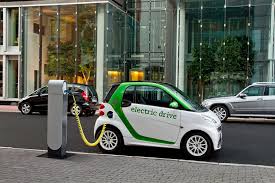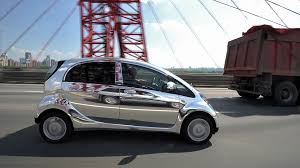Moderate skepticism: electric cars are definitely not more harmful than diesel cars
 Electric cars pollute the environment by 11-28% more than comparable diesel cars. Such a loud statement was made a month ago by a group of German scientists, which attracted a lot of media attention in Germany.
Electric cars pollute the environment by 11-28% more than comparable diesel cars. Such a loud statement was made a month ago by a group of German scientists, which attracted a lot of media attention in Germany.
However, their “research” was quickly refuted by real experts and qualified as unscientific.
It all started when Hans-Werner Sinn published an article (in German) on CO2 emissions from different energy sources. In the press release accompanying the article, which was included in the media, it was indicated that “electric cars are not a panacea for climate protection”, and the meaning of the article itself was that electric cars are more harmful than diesel analogues.
The article was immediately criticized by leading experts in the field of engineering, physics and ecology. Many publications noted that the theses of the submitted material contrast sharply with the many studies on this issue that have been conducted in recent years and months. Some even declared the article “unscientific conspiracy theory against electric cars”, in which the information was not even reviewed by experts and went to print with a huge number of gross and obvious errors.
Here are just a number of inconsistencies in the article with the real situation:
The article incorrectly States the end-of-life of the batteries, which States that after 150,000 km the batteries of electric vehicles become “hazardous waste”. This is far from the case, because the batteries can be used after their resource is exhausted, plus their value does not go anywhere as they are subject to recycling.
The article compares the Tesla Model 3 with a battery capacity of 75 kWh with a diesel Mercedes-Benz C 220, which is also not correct, especially given that the power of Tesla reaches 473 HP, while Mercedes only 194 HP it Is also worth mentioning that this Model 3 with its high performance and large interior space is not the most efficient of the available electric vehicles even within its series, while C 220 — one of the most efficient diesel cars on the German market.
The authors do not understand how to calculate that CO2 emissions Model 3 16% higher than that of Mercedes-Benz, although the official data of the Federal environmental Agency of Germany say the opposite.
The article uses the data of the outdated NEDC cycle, which is obviously inaccurate and replaced by the more modern WLTP standard.
In their calculations of emissions for the full life cycle of an electric vehicle, the authors include emissions from electricity generation for electric vehicles, but do not include emissions from the production and transportation of fuel for diesel vehicles.
The authors believe that every German electric car is powered by the dirtiest sources of electricity that form the German power grid. In fact, an increasing number of electric vehicles are using energy from their own photovoltaic systems, plus many German utility consumers are also able to buy 100% of electricity produced from renewable sources.
Thus, this article has become almost a collection of the most popular myths about electric cars and suggests the worst scenarios for the development of the industry. In General, many agree that the writing of the material was commissioned, and that after such opuses to restore its reputation to the authors will be extremely difficult.




